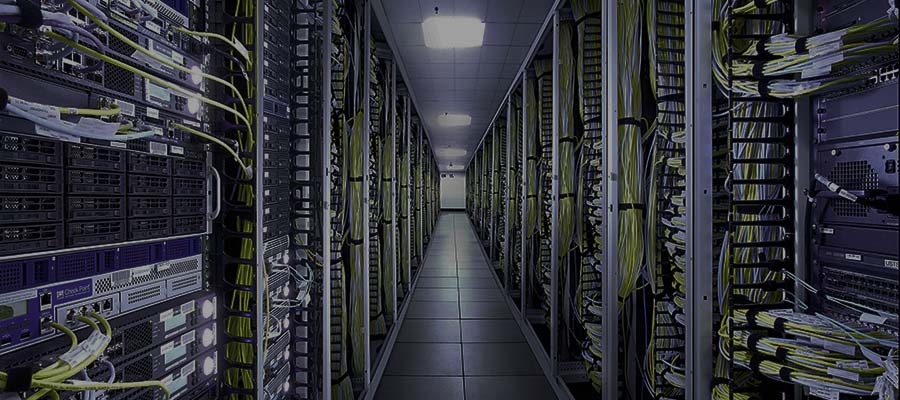
It’s a common fear for small to medium-sized businesses: their servers go offline and they lose hours, days, or even weeks of data. It’s happened to all of us. Whether it’s an unexpected hacking, ransomware, power outage or a natural disaster that wreaks havoc on your local area, the risks are always there. This is why we recommend that you migrate your servers offsite to a data center. They allow your business to avoid the risk of losing your data and maintain availability in case-of-emergency situations. In this article, we'll cover what a data center is and what they offer as well as how migrating your servers will help you reduce those risks.
What is a Data Center?
A data center is typically a physical location, like a building, where servers are housed. The data center will be protected with generators and other features to maintain power if it gets disrupted. Data centers are designed to maintain a high level of availability, which is why they are a good option for business continuity.
Data Centers offer a number of benefits beyond business continuity. For one, you’ll have access to the latest technology and the ability to quickly scale up your storage. Data centers also make it easier to protect your business from natural disasters, data breaches, and cyber attacks.
If you decide to migrate your servers offsite to a data center, you’ll need to consider the type of data center you want to use. There are two different types: co-location and managed hosting. Co-location allows you to host your servers in a shared environment with other businesses so you can take advantage of the latest technology. Managed hosting provides a bit more security as a managed services provider will take care of all aspects of your data center experience, from hardware and software installation to maintenance.
If you have any questions about migrating your servers offsite, or if you want advice on what type of data center would work best for your business our trained reps and solution architects can discuss your needs and find the best fit for you.
Why You Need to Migrate Your Servers Offsite
They offer a wide range of services that can range from data storage to hosting your servers. Data centers also offer security and redundancy in the case of natural disasters and power outages.
Migrating your servers to a data center will help you avoid potential downtime and disasters. If you use a server hosting company, they might only have one or two data centers. If your business is in an area that experiences a natural disaster or power outage, it could take days for your hosting company to get your servers up and running again.
Data centers, on the other hand, have multiple locations that allow for your server to be up and running without any downtime. They also offer 24/7 monitoring and security. This means that your data is safe from theft or intrusion, which could happen if you were hosting your servers in-house.
When you migrate your servers to a data center, it will help you avoid downtime and natural disasters. It's a definite benefit for small to medium-sized businesses!

How Migrating Your Servers Will Help You Reduce the Risk of Losing Your Data
If your data center is out of commission for any reason, you could be without your data for an extended period of time. What if you need to access it for a business opportunity—or worse, your company's survival depends on it? You’ll be unable to access your data, which will limit your availability and hinder your ability to stay in business.
When you migrate your servers to a data center, you’re ensuring that your data is stored in a remote location that is not affected by the same disaster that could occur at your local area. This is because data centers are typically located in different areas of the country with different climate and risk factors.
Migrating your servers offsite can reduce the risk of losing your data and maintain availability in case-of-emergency situations.
With a significant increase in hacking and data breaches, having your servers and data managed in a data center can help your business recover very quickly and reduce the impact of any event. If you are crypto locked or have your data wiped out on a local server you could potentially never recover from that and at the very worst, lose your entire business.
Conclusion
A data center is an offsite facility, usually in a major metropolitan area, that houses servers and other IT equipment. They provide protection for your data in case of an emergency. Data centers offer power by redundant sources. This ensures that your servers will stay up and running, even in emergencies, as well as recover should your servers get hacked or crypto locked or negatively impacted due to people looking to steal money via ransomware.
The benefits of migrating your servers offsite to a data center are clear. By choosing to move your servers to a data center, you’ll be able to avoid the risk of losing your data and maintain availability in case-of-emergency situations. Plus, they will cut costs associated with running your own server room.
The feature list of these data centers is something any business would want: redundant power, high-speed broadband, on-site security, and more. They are equipped to handle all of your IT needs. Plus, they can offer peace of mind knowing that your data is safe.

